"New State" by Professor Salazar
Causes of salazarism. Portuguese Republic in 1910-1926
By the beginning of the twentieth century, once a powerful maritime state, Portugal had become one of the poorest and most underdeveloped countries of Europe. Despite the fact that the Portuguese crown still had extensive possessions in Africa and several strategically important colonies in Asia, Lisbon had not played for a long time not only a decisive, but no significant role in world politics. The socio-economic situation of the country remained difficult, aggravated by the backwardness of social relations — in Portugal, the feudal system that had been formed in the Middle Ages remained. Public discontent with royal rule grew, as Portugal suffered one defeat after another in international politics, and the economic situation in the country also left much to be desired. In this regard, the Republican sentiments spread in Portugal, which were shared by a significant part of the intelligentsia, the bourgeoisie, and even the officer corps. 1 February 1908 The Republicans bombarded the king’s motorcade, killing King Carlos I himself and his eldest son and heir to the throne, Duke Bragança Luis Filipe. Ascended to the throne, the second son of King Carlos Manuel II was a man completely distant from politics. Naturally, he could not hold power in their hands. An armed uprising began in Lisbon on the night of 3 on 4 of October 1910 in Lisbon, and military units loyal to the King capitulated on October 5. Manuel II fled to the UK, and in Portugal, a provisional revolutionary government was created, headed by the writer and historian Teofilu Braga. It adopted a number of progressive laws, including the separation of the church from the state and the abolition of noble titles. However, after some time, the euphoria that accompanied the approval of the republic was replaced by disillusionment with the policies of the liberals - they, like the royal regime, failed to seriously improve the international political and economic situation of Portugal. Moreover, after the end of the First World War and the Revolution in Russia, right-wing radical views began to spread in Europe, which were the reaction of conservative circles to the victorious march of socialism and communism. The economic crisis has led to a sharp discontent with the policies of the liberal governments in the ranks of the Portuguese military elite.
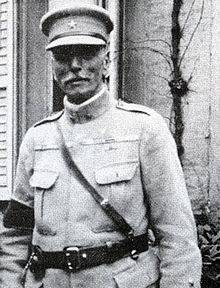 On May 28, 1926 at 06.00 the military units stationed in Braga raised an armed uprising and marched on Lisbon. At the head of the military rebellion was General Manuel Gomis da Costa (1863-1929), who enjoyed great authority in the Portuguese army. Despite the fact that in the years preceding the coup, General da Costa held secondary posts in the armed forces, in particular, he headed the award commissions and commissions for examining petitions of officers of the colonial troops, he was known as a very experienced combat general - yes, there were years services in Mozambique, Angola, Goa; command of the Portuguese contingent in France during the First World War. When the rebels left Braga, the units of the metropolitan garrison also rose. On May 29, officers from the Moscow garrison formed a Public Security Committee, headed by a captain fleet Jose Mendish Cabezadash. Realizing the futility of resistance to the rebels, Portuguese President Mashad Guimaraes transferred power to Captain Jose Cabezadas. However, the coming to power of Cabezadash and the capital's officers did not suit Gomish and Costa, who ordered the troops to continue moving to Lisbon. In the end, a military triumvirate was created, which included Gomish da Costa, Cabezadash and Umberta Gama Ochoa. On June 6, 1926, General Gomish da Costa entered Lisbon at the head of 15 thousand soldiers. On June 19, 1926, Captain Cabezadas, who served as president of Portugal, resigned on May 31. General da Costa, representing the interests of the right-wing conservative circles of Portuguese society, primarily the military elite, became the new president and prime minister of the country. General da Costa advocated for the expansion of presidential powers, the corporate organization of the Portuguese economy, the restoration of church positions and the revision of family law and the foundations of school education in accordance with religious standards. However, these proposals and the Costa were faced with the dissatisfaction of his own colleagues in the coup, among which stood out General Carmona.
On May 28, 1926 at 06.00 the military units stationed in Braga raised an armed uprising and marched on Lisbon. At the head of the military rebellion was General Manuel Gomis da Costa (1863-1929), who enjoyed great authority in the Portuguese army. Despite the fact that in the years preceding the coup, General da Costa held secondary posts in the armed forces, in particular, he headed the award commissions and commissions for examining petitions of officers of the colonial troops, he was known as a very experienced combat general - yes, there were years services in Mozambique, Angola, Goa; command of the Portuguese contingent in France during the First World War. When the rebels left Braga, the units of the metropolitan garrison also rose. On May 29, officers from the Moscow garrison formed a Public Security Committee, headed by a captain fleet Jose Mendish Cabezadash. Realizing the futility of resistance to the rebels, Portuguese President Mashad Guimaraes transferred power to Captain Jose Cabezadas. However, the coming to power of Cabezadash and the capital's officers did not suit Gomish and Costa, who ordered the troops to continue moving to Lisbon. In the end, a military triumvirate was created, which included Gomish da Costa, Cabezadash and Umberta Gama Ochoa. On June 6, 1926, General Gomish da Costa entered Lisbon at the head of 15 thousand soldiers. On June 19, 1926, Captain Cabezadas, who served as president of Portugal, resigned on May 31. General da Costa, representing the interests of the right-wing conservative circles of Portuguese society, primarily the military elite, became the new president and prime minister of the country. General da Costa advocated for the expansion of presidential powers, the corporate organization of the Portuguese economy, the restoration of church positions and the revision of family law and the foundations of school education in accordance with religious standards. However, these proposals and the Costa were faced with the dissatisfaction of his own colleagues in the coup, among which stood out General Carmona. 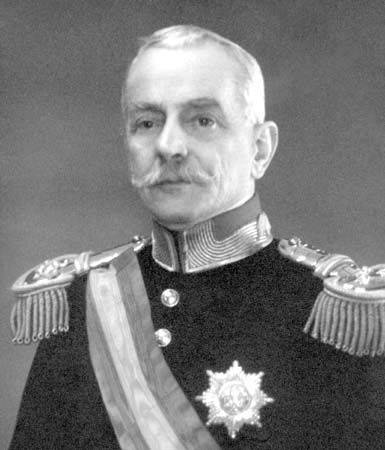
On the night of July 9, 1926, another military coup took place in the country, as a result of which General da Costa was arrested and sent into exile to the Azores. The new head of state was General Oshkar de Carmona (1869-1951), who held the post of Minister of Foreign Affairs in the government of da Costa. General Carmona was a supporter of the construction of a corporate state. The idea of a corporate state was based on the concept of corporatism, i.e. understanding of society as an aggregate of social groups, which should not fight with each other, but cooperate, working together to achieve the objectives of strengthening the state. Corporatist ideology was positioned as an alternative to the class struggle and received in 1920-e - 1930-e. special distribution among European right-wing circles. In a corporate state, the place of political parties and trade unions was occupied by “corporations” - non-elected industry associations. In 1928, General Carmona appointed the thirty-eight-year-old economics professor Antonio Salazar as Minister of Finance of Portugal.
Modest teacher becomes dictator
Antonio de Oliveira Salazar was born in 1889 in the village of Vimieira in the province of Beira, in the family of middle-aged (father was 50 years old, and the mother of 43) parents - the landlord manager and the owner of the station café. The Salazar family was very pious and Anthonyu was a religious person from childhood. After studying at a Catholic seminary, he entered the law faculty of the most famous Portuguese university in Coimbra in 1910, and after graduating from 1914, he remained in the education system as a law professor at the University of Coimbra. In 1917, Salazar concurrently became an assistant at the Department of Economics at the same university. However, despite the fact that Salazar chose a secular career and became a university lecturer, he remained close to religious circles and closely associated with the Catholic clergy.
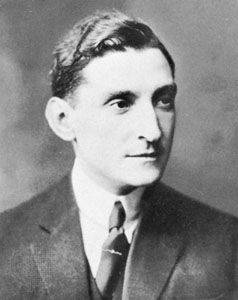 It was in 1910-s. formed the foundations of a political ideology, subsequently approved by Salazar as dominant in Portugal. Young Salazar was a supporter of the concept of the Pope Leo XIII, who formulated the basic principles of corporatism - the desire for state prosperity through class cooperation, social justice and state regulation of the economy. Gradually, a circle of right-wing conservative teachers and clergymen formed around Salazar, who were unhappy with the policies of the republican government, which, in the opinion of the right, led Portuguese society to a dead end. Naturally, the liberal political elite of Portugal was concerned about the revival of right-wing conservative sentiments in the country. In 1919, Salazar was dismissed from the university on charges of monarchist propaganda, after which he had no other choice but to engage in political activities at a professional level. However, Salazar never tried to play the role of a speaker; moreover, he even felt a certain aversion to the activities of parliamentarians. Only the persuasion of friends forced him to nominate his candidacy for parliament in 1921 from the Catholic Center Party. However, after becoming a deputy, Salazar, after the first meeting of the parliament, became disillusioned with his work and no longer participated in the activities of the legislative authorities.
It was in 1910-s. formed the foundations of a political ideology, subsequently approved by Salazar as dominant in Portugal. Young Salazar was a supporter of the concept of the Pope Leo XIII, who formulated the basic principles of corporatism - the desire for state prosperity through class cooperation, social justice and state regulation of the economy. Gradually, a circle of right-wing conservative teachers and clergymen formed around Salazar, who were unhappy with the policies of the republican government, which, in the opinion of the right, led Portuguese society to a dead end. Naturally, the liberal political elite of Portugal was concerned about the revival of right-wing conservative sentiments in the country. In 1919, Salazar was dismissed from the university on charges of monarchist propaganda, after which he had no other choice but to engage in political activities at a professional level. However, Salazar never tried to play the role of a speaker; moreover, he even felt a certain aversion to the activities of parliamentarians. Only the persuasion of friends forced him to nominate his candidacy for parliament in 1921 from the Catholic Center Party. However, after becoming a deputy, Salazar, after the first meeting of the parliament, became disillusioned with his work and no longer participated in the activities of the legislative authorities. When General Gomish da Costa carried out a military coup in 1926, Professor Salazar welcomed the coming to power of right-wing conservative forces. In June, 1926 Salazar served for five days as Minister of Finance in the government of da Costa, but resigned, disagreeing with the economic policies of the country's leadership. In 1928, after General Carmona came to power, Salazar re-occupied the post of finance minister of the country. At the core of Salazar’s economic concept were the principles of reasonable economy, limiting consumption and criticizing consumerism. Salazar criticized both the economic models that dominated his contemporary world — capitalist and socialist. It should be noted that the financial and economic policy of Salazar already in the first years of his stay at the head of the Ministry of Finance of Portugal showed a certain effectiveness. For example, 11 in May 1928. Salazar issued a decree on finance, which introduced restrictions on loans, canceled state financing of commercial enterprises, and reduced state budget expenditures to finance colonial possessions. Seeing the successes of economic policy, General Oshkar di Carmona in 1932, appointed Salazar Prime Minister of Portugal, however, retaining the post of president of the country. So Salazar became the de facto leader of the Portuguese state, which he began reforming immediately - the next year after being appointed to the premiership.
Corporate "New State"
In 1933 was The new constitution of Portugal was adopted by Salazar. Portugal became the “New State”, that is, the estate-corporate, organized according to the estate principle of integrating all social groups to work together for the sake of the country's prosperity. Corporations were professional industry associations that elected representatives to the Corporate Chamber, which reviewed bills. In addition, a National Assembly was created from 130 deputies elected by direct vote of citizens of the country. Representatives of the opposition could also be elected to the National Assembly, although its activities were limited in every way, first of all, by financial and information methods. The right to elect and be elected was received only by the Portuguese male, who had education and a certain level of income. Thus, all Portuguese women, as well as illiterate (of which there were a significant number in the country) and the lower strata of society, did not take part in the elections. In the local government could take part only the heads of families. The President of Portugal was elected by direct vote for 7 years, and the candidature was proposed by the Council of State, which included the Prime Minister, Presidents of the National Assembly, the Corporate Chamber, the Chairman of the Supreme Court, the State Treasurer and 5 officials appointed for life by the President. In Portugal, Salazar banned both strikes and lockout - thus, the state showed concern for both the interests of entrepreneurs and the interests of workers. The “new state” was oriented towards supporting the private sector of the economy, but did not put the interests of employer-entrepreneurs in the first place, in order to prevent discrimination of workers and, thus, not to pour water on the left-wing mill. Issues of ensuring employment of the population were also regulated by the state. In Portugal, one obligatory day off per week was introduced, as well as allowances for work on weekends and public holidays and at night, annual paid leave. Portuguese workers united into syndicates, which, however, could not be part of sectoral corporations and act autonomously, being independent organizations with the rights of a legal entity. Thus, the Portuguese state sought to take care of the realization of workers' rights and in a certain sense differed in a favorable direction from other corporate states of Europe of the 1930-s, including from fascist Italy. Despite the fact that Salazar was a deeply religious man, he did not go to the reunification of the church with the state - Portugal remained, in general, a secular country. However, anti-parliamentarianism, anti-liberalism and anti-communism remained the defining features of the New State regime.
Luso-tropicalism: Portuguese "racial democracy"
Unlike German Nazism and even Italian Fascism, the Salazar regime in Portugal never had nationalistic or racist content. First of all, it was associated with the specifics of the historical development of Portugal. The search for “wrong roots”, according to Salazar, could only contribute to the disunity of Portuguese society, a significant part of which were Portuguese with an admixture of Arab, Jewish, African blood. In addition, it was during the reign of Salazar in Portugal that the socio-political concept of “luzo-tropicalism” became widespread.
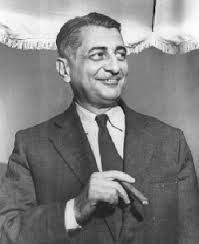 The concept of lusotropicalism was based on the views of the Brazilian philosopher and anthropologist Gilberto Freyri, who published the fundamental work “The Big House and the Hut” in 1933. In this work, Freyri, analyzing the specifics of the historical and cultural development of Brazil, dwelt on the special role of the “big house,” or master's house, which was a single structure headed by the owner. All components of this structure took their places and were subordinated to the same owner, followed a single goal. Thus, there was a social integration and the "white" owner, and his mulattoes - administrators, and black slaves and servants. According to Freyri, the Portuguese played the leading role in the formation of a similar social structure, who presented the author as a completely special people of Europe. The Portuguese were considered as the most adapted among other European nations to interact and mix with representatives of other nations and races, capable of transmitting their cultural values and form a single Portuguese-speaking community. As Freyri stressed, the Portuguese never really asked themselves questions of racial purity, which distinguished them favorably from the British, the Dutch, the Germans, the French and, ultimately, made it possible to form a developed Brazilian nation in Latin America. For the Portuguese, according to Freyri, racial democracy and the pursuit of a civilizational mission were typical, which they, to one degree or another, coped with.
The concept of lusotropicalism was based on the views of the Brazilian philosopher and anthropologist Gilberto Freyri, who published the fundamental work “The Big House and the Hut” in 1933. In this work, Freyri, analyzing the specifics of the historical and cultural development of Brazil, dwelt on the special role of the “big house,” or master's house, which was a single structure headed by the owner. All components of this structure took their places and were subordinated to the same owner, followed a single goal. Thus, there was a social integration and the "white" owner, and his mulattoes - administrators, and black slaves and servants. According to Freyri, the Portuguese played the leading role in the formation of a similar social structure, who presented the author as a completely special people of Europe. The Portuguese were considered as the most adapted among other European nations to interact and mix with representatives of other nations and races, capable of transmitting their cultural values and form a single Portuguese-speaking community. As Freyri stressed, the Portuguese never really asked themselves questions of racial purity, which distinguished them favorably from the British, the Dutch, the Germans, the French and, ultimately, made it possible to form a developed Brazilian nation in Latin America. For the Portuguese, according to Freyri, racial democracy and the pursuit of a civilizational mission were typical, which they, to one degree or another, coped with.Salazar endorsed the concept of louso-tropicalism, since it responded to the colonial aspirations of Portugal. The oldest colonial power in Europe, by the time in question, Portugal had the following colonies: Guinea-Bissau, Cape Verde, Sao Tome and Principe, Angola and Mozambique in Africa, Macao, Goa, Daman and Diu, East Timor - in Asia. The Portuguese leadership was very concerned that the colonies could either be selected by the more powerful European powers, or national liberation uprisings would break out in them. Therefore, the government of Salazar approached the issues of organizing the colonial and national policy very carefully. Salazar distanced himself from the racism traditional for most European rightists and sought to portray Portugal as a multiracial and multicultural country for which colonies, starting from the 15th century, are an integral part, without which it will actually lose real political and economic sovereignty. Salazar’s aspiration to assert pod-tropicism as one of the pillars of Portuguese statehood intensified after the end of the Second World War, when Africa and Asia were shaken by national liberation and anti-colonial wars, and even such powerful powers as the United Kingdom and France were preparing their African and Asian wards to speedy self-determination. In 1951-1952 Salazar even arranged for Gilberto Freyri to travel to Portugal and her colonies so that the philosopher could personally verify that the ideals of Luso-tropicalism in the metropolis and its African possessions were embodied. The prospect of losing the colonies of Salazar frightened most of all, perhaps, second only to the fear of the left forces coming to power in Portugal. However, the "racial democracy" in the Portuguese colonies was very relative - their population was officially divided into three groups: Europeans and local "whites"; “Assimiladush” - that is, mulattos and Europeanized blacks; actually africans. This division was maintained even in the colonial forces, where Africans could attain the maximum to the rank of “Alferes” - “Ensign”.
Anti-communism is one of the pillars of the “New State”
Anti-Communism Salazar largely determined the participation of Portugal in the Spanish Civil War on the side of Franco. Salazar was very afraid of the penetration of communist ideas into the Iberian Peninsula and the growing popularity of communists, leftist socialists and anarchists in Spain and Portugal. These fears had very serious grounds - in Spain, the communist and anarchist movements were among the strongest in the world; in Portugal, leftist sentiments, although they did not reach the Spanish level, were also significant. 1 August 1936 Mr. Salazar said that he would provide comprehensive assistance to General Franco and his supporters, and if necessary, give the order to the Portuguese army to take part in the fighting on the side of the Franco. In Portugal, the Viriatush Legion was formed, named after Viriat, the legendary leader of the ancient Luzitans who inhabited the territory of Portugal (Lusitania) and fought against the Roman colonization. Volunteers of the Viriatush Legion, a total of 20 000 people, took part in the Spanish Civil War on the side of General Franco.
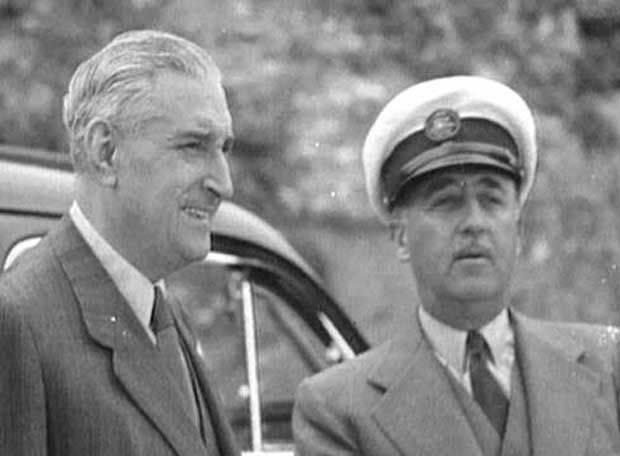
24 October 1936 Portugal officially broke off diplomatic relations with the Spanish Republic, and on November 10 1936 Portuguese government officials and military personnel were sworn in to the New State. In 1938, Portugal officially recognized the “National Spain” of General Franco as the legitimate Spanish state. However, the matter did not come to a large-scale invasion of Portuguese troops into Spain, because Salazar did not want to definitely take the side of Hitler’s Axis and hoped to maintain normal relations with France and, above all, with Great Britain, a long-standing historical partner and ally of the Portuguese state. After General Franco managed to take over the Republicans and come to power in Spain, the two right states of the Iberian Peninsula became the closest allies. At the same time, political behavior of both Spain and Portugal had a lot in common. Thus, during the Second World War, both countries maintained political neutrality, which allowed them to avoid the pitiable fate of other European right-wing regimes. On the other hand, Salazar was nevertheless more neutral than Franco - if the latter sent the famous "Blue Division" to the Eastern Front to fight against the Soviet Union, then Portugal did not send a single military unit to the aid of Germany. Of course, the fear of losing economic ties with Britain, which for Portugal were still more significant than the ideological proximity with Germany, played a role here. However, the fact that when Berlin was taken by Soviet troops and Adolf Hitler committed suicide, Portugal flags were lowered as a sign of mourning speaks about the true attitude towards Hitler and Mussolini on the part of Salazar.
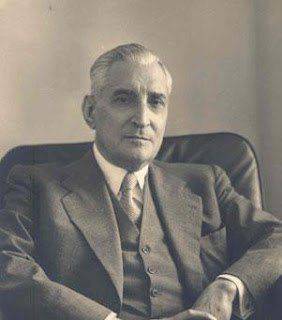 The end of World War II changed the political balance of power in Europe. Salazar, who remained in power in Portugal, was forced to somewhat update the strategy of his foreign policy. He finally shifted to cooperation with the United States and Britain, after which Portugal joined the ranks of the NATO bloc. The defining line of domestic and foreign policy of the Salazarov regime in 1950-e - 1960-e. became militant anti-communism. In 1945 was based on existed with 1933 PVDE (port. Polícia de Vigilância e de Defesa do Estado) - “Police of State Supervision and Security”, was created by PIDE (Polícia Internacional e de Defesa do Estado) - “International Police of State Protection”. In fact, PIDE was the main Portuguese intelligence service, specializing in combating internal and external threats to the security of the Portuguese state, primarily with the left opposition inside Portugal and national liberation movements in the colonies. In Soviet literature, they repeatedly reported about the brutal methods of work of the Portuguese "secret police" PIDE, the torture used by its operational officers against oppositionists, first of all - the communists and African independence fighters. Formally, PIDE was subordinate to the Ministry of Justice of Portugal, but in reality it was more likely subordinated directly to Salazar. PIDE agents covered not only the whole of Portugal, but also its African and Asian colonies. PIDE actively collaborated with international anti-communist organizations, one of which, “Ajinter Press”, was formed in Lisbon by French nationalist Yves Guerin-Serac and coordinated the anti-communist movement in Europe. In the Portuguese colony of Cape Verde (Cape Verde), the infamous Tarrafal prison was established, which existed from 1936 to 1974. Many leading activists of the Portuguese communist movement and national liberation movements in the Portuguese colonies passed through it. The conditions of the imprisonment of political prisoners of "Tarrafal" were very cruel, many of them died, unable to bear the humiliation and tropical climate. By the way, before 1940's. Portuguese counterintelligence officers underwent retraining and advanced training in Nazi Germany, training in the Gestapo. Participants of the communist and anarchist movements of Portugal, African and Asian national liberation movements felt the “Gestapovka” hardening of the Salazarov counterintelligence agents. Thus, in the prison "Tarrafal" prisoners for the slightest offense could be placed in a punishment cell, which was located across the wall from the prison furnace and the temperature in which could rise to seventy degrees. The beatings from the warders were quite ordinary manifestations of cruelty towards prisoners.
The end of World War II changed the political balance of power in Europe. Salazar, who remained in power in Portugal, was forced to somewhat update the strategy of his foreign policy. He finally shifted to cooperation with the United States and Britain, after which Portugal joined the ranks of the NATO bloc. The defining line of domestic and foreign policy of the Salazarov regime in 1950-e - 1960-e. became militant anti-communism. In 1945 was based on existed with 1933 PVDE (port. Polícia de Vigilância e de Defesa do Estado) - “Police of State Supervision and Security”, was created by PIDE (Polícia Internacional e de Defesa do Estado) - “International Police of State Protection”. In fact, PIDE was the main Portuguese intelligence service, specializing in combating internal and external threats to the security of the Portuguese state, primarily with the left opposition inside Portugal and national liberation movements in the colonies. In Soviet literature, they repeatedly reported about the brutal methods of work of the Portuguese "secret police" PIDE, the torture used by its operational officers against oppositionists, first of all - the communists and African independence fighters. Formally, PIDE was subordinate to the Ministry of Justice of Portugal, but in reality it was more likely subordinated directly to Salazar. PIDE agents covered not only the whole of Portugal, but also its African and Asian colonies. PIDE actively collaborated with international anti-communist organizations, one of which, “Ajinter Press”, was formed in Lisbon by French nationalist Yves Guerin-Serac and coordinated the anti-communist movement in Europe. In the Portuguese colony of Cape Verde (Cape Verde), the infamous Tarrafal prison was established, which existed from 1936 to 1974. Many leading activists of the Portuguese communist movement and national liberation movements in the Portuguese colonies passed through it. The conditions of the imprisonment of political prisoners of "Tarrafal" were very cruel, many of them died, unable to bear the humiliation and tropical climate. By the way, before 1940's. Portuguese counterintelligence officers underwent retraining and advanced training in Nazi Germany, training in the Gestapo. Participants of the communist and anarchist movements of Portugal, African and Asian national liberation movements felt the “Gestapovka” hardening of the Salazarov counterintelligence agents. Thus, in the prison "Tarrafal" prisoners for the slightest offense could be placed in a punishment cell, which was located across the wall from the prison furnace and the temperature in which could rise to seventy degrees. The beatings from the warders were quite ordinary manifestations of cruelty towards prisoners. Colonial war: defeat in India and years of blood in Africa
However, no matter how Salazar tried to prevent the course of history, this turned out to be impossible. After the end of the Second World War in Africa, the national liberation movements of local peoples became more active, and the Portuguese colonies did not bypass the party. The concept of “puddle-tropicism”, which implied the unity of the Portuguese population of the metropolis and the African population of the colonies, crumbled like a house of cards - Angolans, Mozambicans, Guineans, Zelenomisstsy demanded political independence. Since, unlike Britain or France, Portugal was not going to grant independence to its colonies, national liberation movements shifted to an armed struggle against the Portuguese colonialists. Help in organizing partisan resistance was provided by the Soviet Union, China, Cuba, the German Democratic Republic, some African countries. The 1960s are the first half of the 1970s. went down in history as the Portuguese Colonial War, although there were several wars, strictly speaking, and they were smoldering. In 1961 was An armed uprising began in Angola, in 1962. - in Guinea-Bissau, in 1964 - in Mozambique. That is, armed uprisings broke out in the three largest Portuguese colonies in Africa - and in each of them numerous pro-Soviet military and political organizations operated: in Angola - MPLA, in Mozambique - FRELIMO, in Guinea-Bissau - PAIGC. Almost simultaneously with the beginning of the colonial war in Africa, Portugal lost almost all of its Asian possessions, with the exception of Macao (Macau) and East Timor. The preconditions for the loss of the colonies of Goa, Daman and Diu, Dadra and Nagar-Haveli, located in Hindustan, were laid by the proclamation of the independence of India in 1947. Almost immediately after independence, the Indian leadership addressed the Portuguese authorities with the question of the timing and means of transferring the Portuguese possessions on the Indian subcontinent to the Indian state. However, India faced Salazar’s reluctance to transfer the colonies, after which she made it clear to Lisbon that in case of disagreement, without hesitation, she would use armed force. In 1954 was Indian troops occupied Dadra and Nagar Haveli. In 1960 was preparations began for the Indian armed forces to invade Goa and Daman and Diu. Despite the fact that the Minister of Defense of Portugal, General Botelu Moniz, Minister of the Army Colonel Almeida Fernandez and Foreign Minister Francisco da Costa Gomish urged Salazar to completely useless military resistance to the possible invasion of Indian troops into the Portuguese possessions in India, Salazar ordered military preparations. Of course, the Portuguese dictator was not so stupid as to expect to defeat huge India, but he hoped that in the event of an invasion Goa would last at least eight days. During this time, Salazar hoped to enlist the help of the United States and Great Britain and resolve the situation with Goa peacefully. Military group in Goa was strengthened to 12 thousand. soldiers and officers - due to the transfer of military units from Portugal, Angola and Mozambique. However, then the military contingent in India was again reduced - the army command managed to convince Salazar of the greater need for the presence of troops in Angola and Mozambique than in Goa. Political efforts to resolve the situation were not crowned with success and 11 December 1961. Indian troops received orders to attack Goa. During 18-19 December 1961 The Portuguese colonies of Goa, Daman and Diu were occupied by Indian troops. 22 Indian and 30 Portuguese soldiers killed in fighting. 19 December in 20.30, General Manuel António Vassalo y Silva - Governor of Portuguese India - signed the act of surrender. Goa, Daman and Diu became part of India, although the Salazar government refused to recognize Indian sovereignty over these territories and considered them occupied.
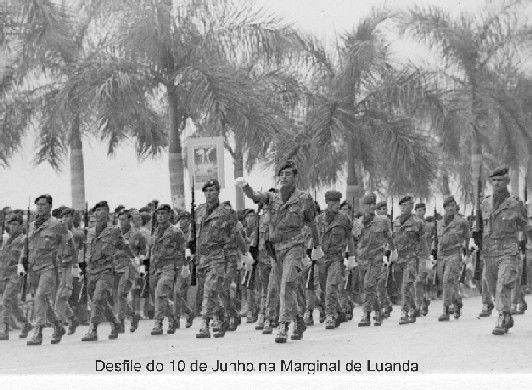
As for the colonial war in Africa, it turned into a real curse of Salazarov Portugal. Since the troops stationed in the colonies were clearly not enough to suppress the growing resistance of national liberation movements, regular Portuguese conscripts from the metropolis began to be sent to Angola, Mozambique and Guinea-Bissau. Naturally, this caused enormous discontent among the population of the country. The wars in Africa required enormous financial resources, since the belligerent army needed increased supplies, ammunition, weapons, payment for the services of mercenaries and attracted specialists. In Angola, the war against the Portuguese colonialists reached its greatest scope and simultaneously turned into a civil war waged by three main Angolan national liberation organizations against each other - the right-wing FNLA led by Holden Roberto, the Maoist UNITA led by Jonas Savimbi and the pro-Soviet MPLA led by Agostinho Neto. They were opposed by an impressive grouping of Portuguese troops under the command of General Francisco da Costa Gomes. In the Angolan War, which lasted from 1961 to 1975, 65 took part 000 of Portuguese soldiers, 2990 of them died and 4300 was injured, captured or missing. In Guinea-Bissau, intensive guerrilla warfare under the leadership of the pro-Soviet PAIGC began in 1963. However, here the commander of Portuguese troops, General António de Spinola, used effective tactics to use units fully staffed by Africans in both soldier and officer positions. The Portuguese agents in 1973 killed the leader of PAIGC, Amilcar Cabral. The Portuguese Air Force used the napalm-burning tactics of the jungle, borrowed from the practice of the US Air Force in Vietnam. During the war in Guinea, in which from 1963 to 1974. 32 000 Portuguese soldiers and officers participated, more than 2 000 Portuguese soldiers killed. 1964 to 1974 The war for the independence of Mozambique, in which the Portuguese were opposed by the guerrillas of the pro-Soviet FRELIMO led by Edouard Mondlan, lasted. In addition to the USSR, FRELIMO used the help of China, Cuba, Bulgaria, Tanzania, Zambia, and Portugal cooperated with South Africa and Southern Rhodesia. In Mozambique, the Portuguese soldiers fought before the 50 000, the losses amounted to the Portuguese military 3500.
End of the Salazar Empire
The colonial wars contributed to the aggravation of the situation in Portugal itself. The fixed costs borne by the country, financing the operations of the colonial troops in Angola, Guinea and Mozambique, contributed to a sharp deterioration in the standard of living of the population. Portugal remained the poorest country in Europe, many Portuguese left in search of work in France, Germany and other more developed countries of Europe. Portuguese workers who went to work in other European countries were convinced of the difference in living standards and political freedoms. Thus, the average life expectancy in Portugal 1960-ies. it was still only 49 years old - more than 70 in developed European countries. The country had a very weak health care, which entailed a high mortality rate and a rapid aging of the population, the spread of dangerous diseases, first of all - tuberculosis. This was also explained by the extremely low social costs - they spent 4% of the budget, while 32% of the budget was spent on financing the Portuguese army. As for the colonial wars, they completely dissuaded the people of Portugal in the mythical unity of all the territories that made up the Portuguese empire. Most of the rank-and-file Portuguese were concerned about how not to get into the Portuguese army, which was fighting in distant Angola, Guinea, or Mozambique, or how their close relatives would have been taken there. Oppositional sentiments were rapidly spreading in the country, which also embraced the personnel of the armed forces.
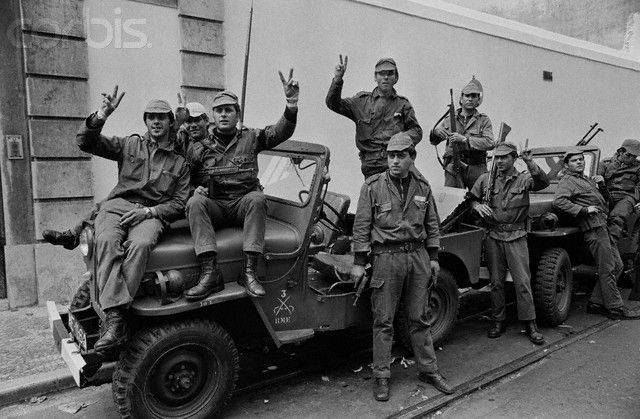
In 1968, Salazar came down with a stroke - after falling from a deck chair. From that time on, he no longer took a real part in government. 27 July 1970 d. 81-year-old "father of the New State" died. 1968 to 1974 The country's prime minister was Marcela Caetana, and the presidency from 1958 was maintained by Admiral America Tomash. In 1974, the “Carnation Revolution” took place in Portugal, in which the leading role was played by military personnel who were part of the “Captain Movement”. As a result of the “Carnation Revolution”, Caetanu and Tomash were overthrown, the actual end of Salazarov’s “New State” came. During the 1974-1975. Political independence was granted to all Portuguese colonies in Africa and Asia.
Information